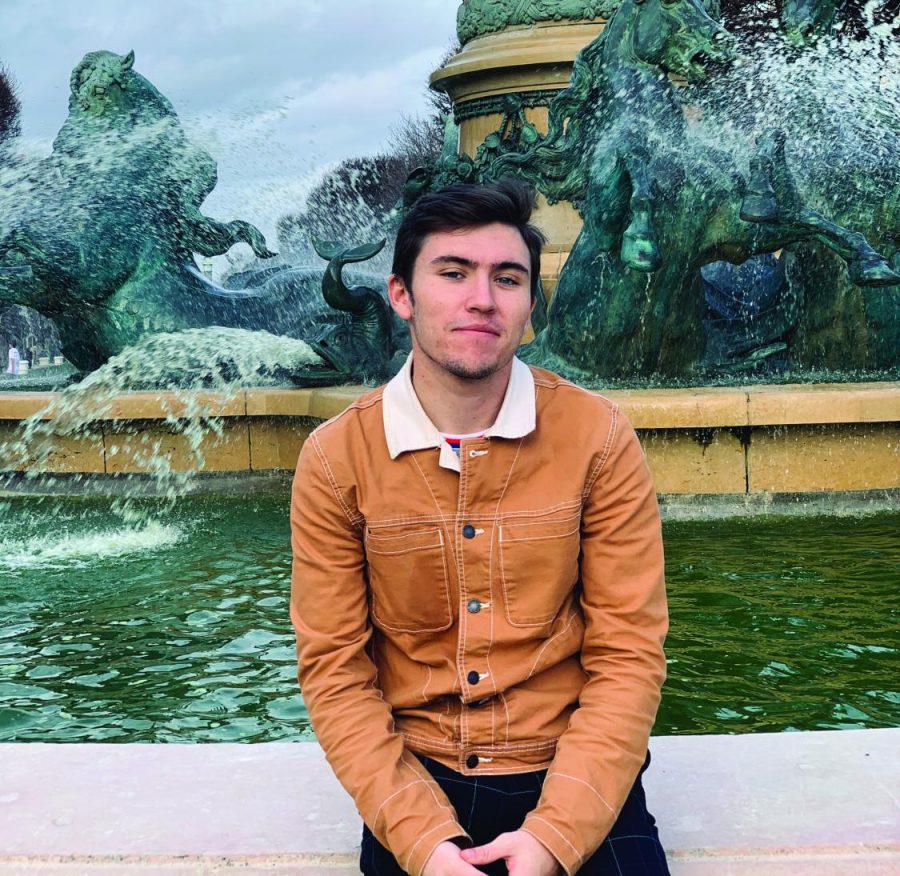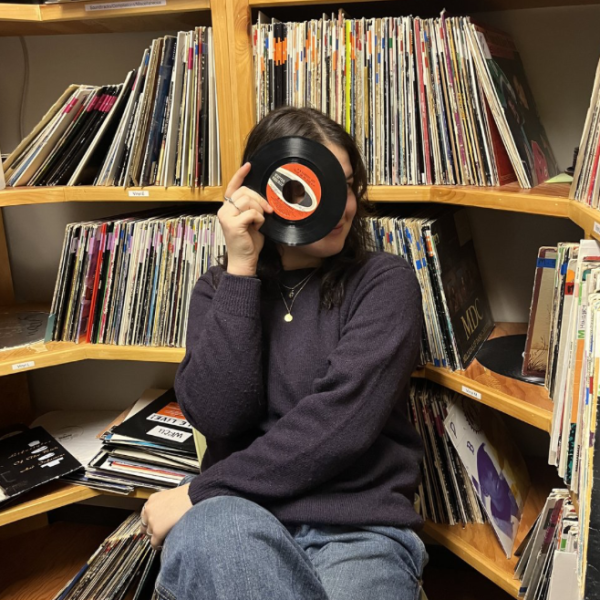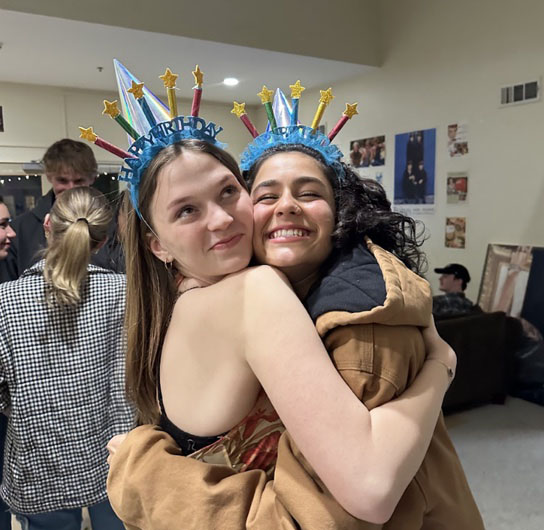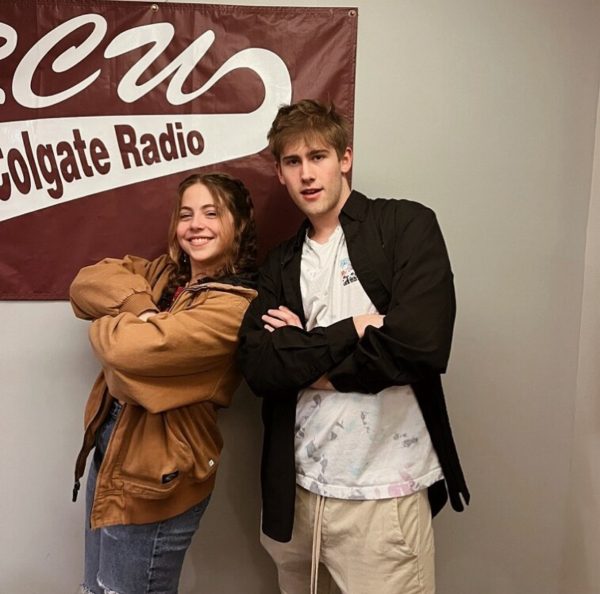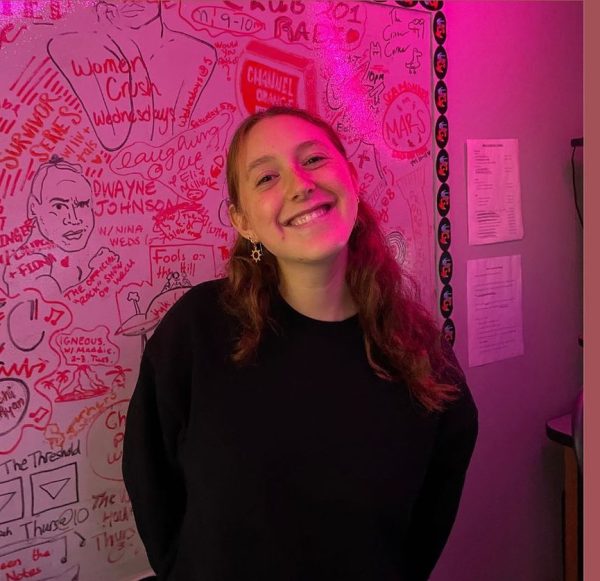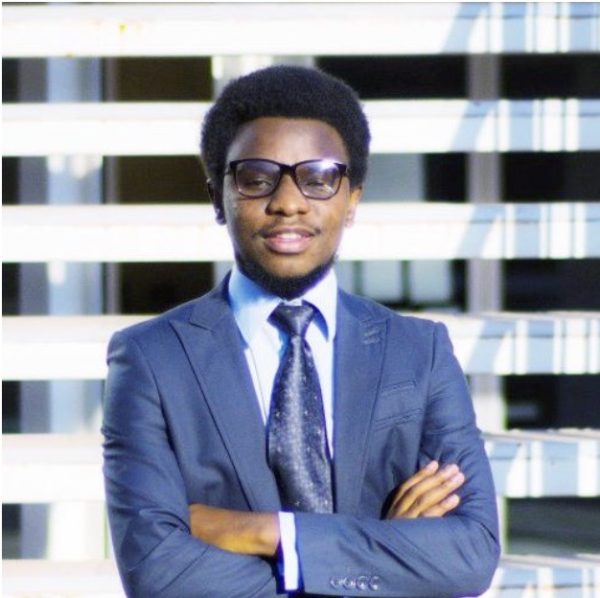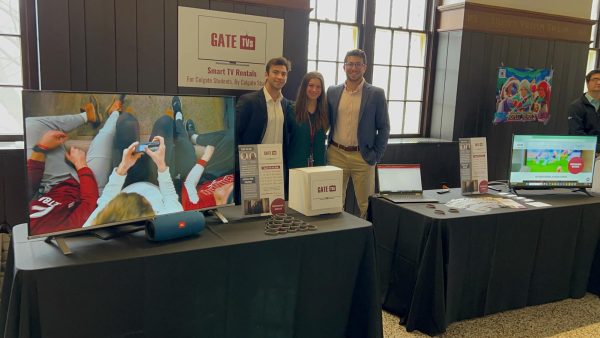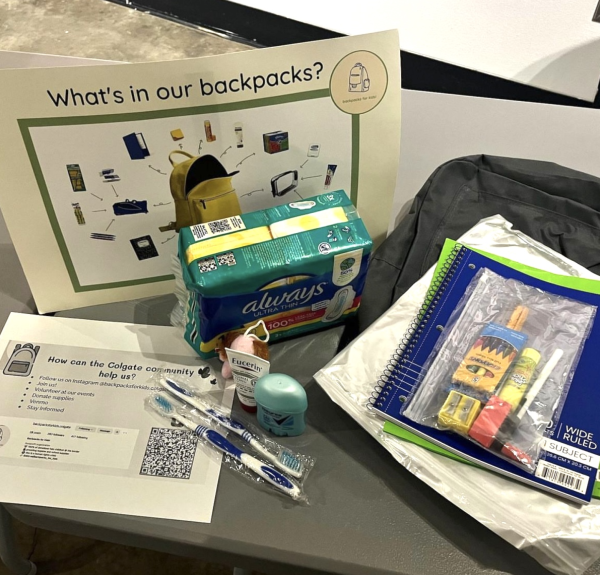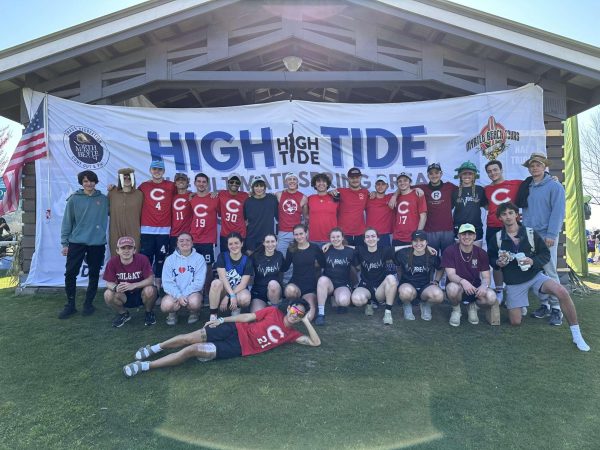Jake Gomez: Structural Change is Caring
Jake Gomez is a senior from Los Angeles, concentrating in peace and conflict studies and Middle Eastern and Islamic studies. On campus, Gomez has been involved in promoting conversations about racial justice through his role as vice president of the Konosioni Honor Society and involvement in the Colgate Student Coalition (CSC).
Gomez applied to Konosioni to be able to lobby for change on campus.
“Sometimes it feels as though Konosioni is more of a prestige thing and not so much of a group of leaders coming together and doing something great for the community,” Gomez said. “Konosioni’s work goes under the radar and isn’t quite known in a lot of the student populations. Changing that is a huge goal of ours, just getting out the word about what we do… and I think a lot of that can be seen in the 13 Days of Education initiative and the establishment of the Colgate Student Coalition (CSC) which a lot of Konosioni members were a part of establishing.”
Gomez is involved with the CSC and helped to plan and moderate the 13 Days of Education event series.
“The 13 days initiative was so outside of the box in terms of what Konosioni has done before. Usually there’s local outreach that they do, and last year they worked with indigenous communities, but a lot of that work was not known [among the student body]. Given the political moment we are in and the amount of racial injustice that we are seeing, it only felt proper to be part of that conversation and bring it to campus,” Gomez said.
Gomez reflected on some of the most impactful work he did during the 13 Days of Education event.
“I was the moderator for the ‘Conversation with a Former White Supremacist’ event with Chuck Lee, a former neo-nazi group member. That was very impactful and my first time moderating something on campus alone which was a huge leadership experience” he said.
Gomez has also worked closely with the co-president of Konosioni, Jailekha Zutshi, on successful initiatives.
“We put together and moderated a white allyship panel where we brought white community members from all facets of campus — students, professors and people from religious services — to have candid conversations about how they’re struggling to find their place and support students of color on this campus, as well as more broadly participate productively in conversations about race and not take up space as white people. We got a lot of feedback on that and people wanted to make that into a series, so we are trying to work on that as well,” Gomez said.
“I also helped put together the university museums event about decolonizing museum spaces and the ways in which the Longyear Museum of Anthropology and the Picker Art Gallery are working right now and have been working in terms of making sure that we don’t have sensitive cultural objects in our collection so that those get repatriated to communities,” he said. “There are pieces that we just don’t know where they came from, so doing the research and putting in the time to make sure that those are repatriated is really important. This event was consequently required for all Konosioni members to attend because that was the basis for the name change that we’re trying to undergo right now.”
In addition to Konosioni, Gomez is a student curatorial assistant in the Picker Art Gallery, president and founder of the Colgate Model Arab League and president of Doin the Damn Thang (DDT) dance group. Gomez explains how DDT has contributed to his understanding of diversity and allyship.
“This space has been a champion for diversity in a sense. DDT was founded on the fact that queer people and people of color and women of color didn’t really have a space to dance in open style and hiphop in the way that they wanted to in a free way. Being a leader of that has made me constantly aware of my positionality as a white person while trying to preserve this legacy of tradition and diversity,” Gomez said.
Gomez discussed how his personal identity informed his approach to helping others feel included in spaces on campus.
“[Colgate] is particularly a very white upper class campus and that’s not necessarily a narrative that I can apply to myself perfectly. I am a white person on this campus and that is something I am trying to navigate and be conscious of, but also I come from a huge Mexican-American family of all different shades, and so, in a way I have this identity experience in navigating racial and cultural spaces and recognizing that my experiences as a cis-gendered white man is different from, perhaps, my grandparents who have darker complexions than I do,” he said. “I brought that with me coming into Colgate as a first-year and I think it was really hard for me to adjust to this culture sometimes because it is very white, and then the spaces that are not white, like the Latin American student organizations or queer people of color organizations and other alternative spaces like that, I didn’t feel like I necessarily fit in perfectly there either.”
He explains how his involvement on campus has impacted his identity.
“It’s kind of like an imposter syndrome, especially being someone who is mixed but who presents completely as white. I can’t argue the fact that I’m not. I have blue eyes and very light skin and I was worried about taking up those spaces,” Gomez said. “It wasn’t until this summer and reflecting on national and international events and being a part of CSC where I realized I have the ability to be both a white Mexican on this campus and engage in conversations about my own experiences while also recognizing I don’t have the same perspective that other people on this campus have. I think through Konosioni and the name change and my work with the 13 Days I’m realizing more and more that white people can be changemakers for people of color, not necessarily the heroes or heroines, but collaboratively white people on this campus should be taking a greater role.”
Gomez reflects on how his cultural background has molded him and impacted him to use his voice on campus.
“I think I’m lucky in a sense that I do have cultural identities that have compounded me to work harder on that and to recognize racial issues. We have lots of white-presenting individuals in Konosioni too, who have really dedicated themselves to racial justice and committing reparations to indigenous communities, so I think that all of those things just intersected and culminated together to me saying ‘This is my last year at Colgate. This is a community I’ve fallen in love with and I’ve made friends for life I hope. And to ignore national conversations at the local level is irresponsible.’”


